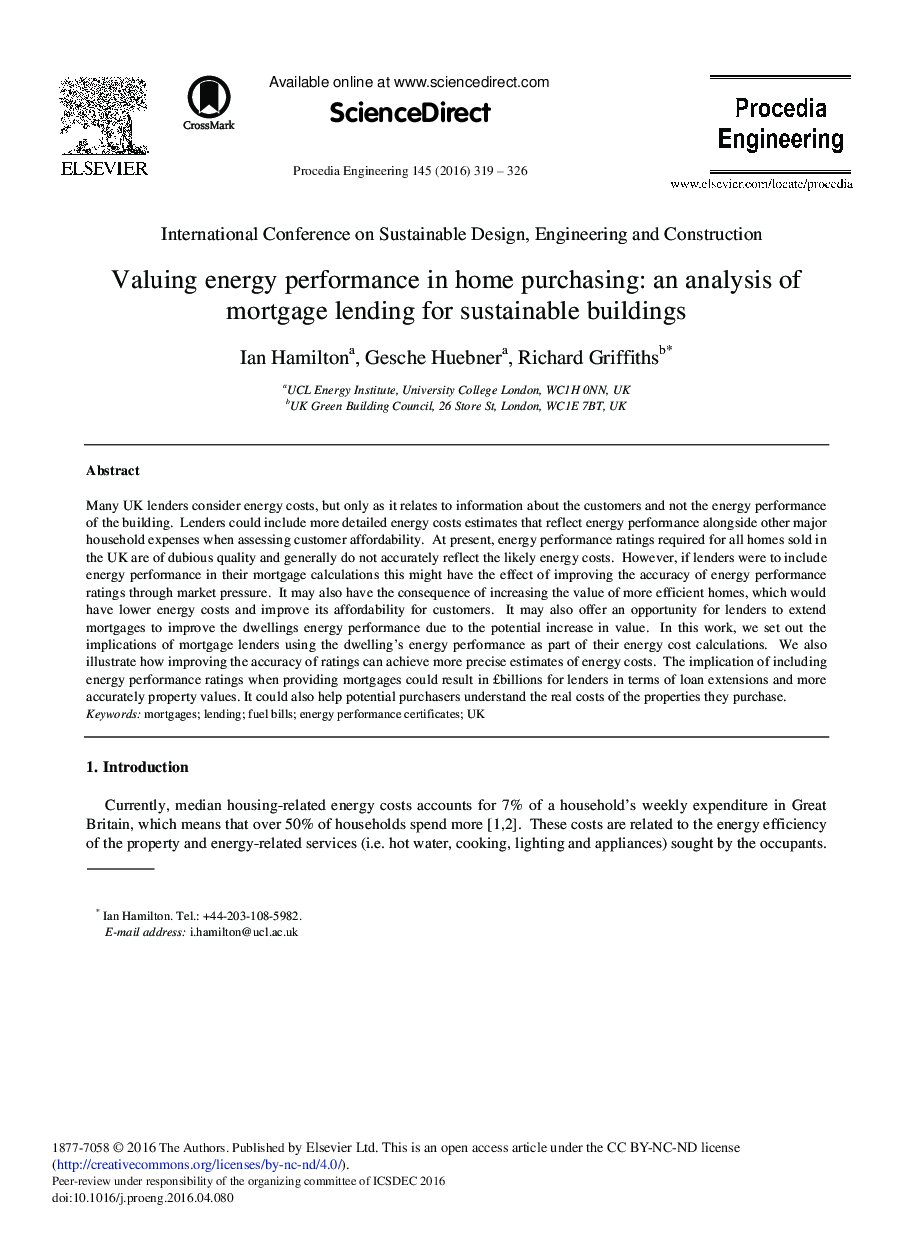| Article ID | Journal | Published Year | Pages | File Type |
|---|---|---|---|---|
| 853683 | Procedia Engineering | 2016 | 8 Pages |
Abstract
Many UK lenders consider energy costs, but only as it relates to information about the customers and not the energy performance of the building. Lenders could include more detailed energy costs estimates that reflect energy performance alongside other major household expenses when assessing customer affordability. At present, energy performance ratings required for all homes sold in the UK are of dubious quality and generally do not accurately reflect the likely energy costs. However, if lenders were to include energy performance in their mortgage calculations this might have the effect of improving the accuracy of energy performance ratings through market pressure. It may also have the consequence of increasing the value of more efficient homes, which would have lower energy costs and improve its affordability for customers. It may also offer an opportunity for lenders to extend mortgages to improve the dwellings energy performance due to the potential increase in value. In this work, we set out the implications of mortgage lenders using the dwelling's energy performance as part of their energy cost calculations. We also illustrate how improving the accuracy of ratings can achieve more precise estimates of energy costs. The implication of including energy performance ratings when providing mortgages could result in £billions for lenders in terms of loan extensions and more accurately property values. It could also help potential purchasers understand the real costs of the properties they purchase.
Related Topics
Physical Sciences and Engineering
Engineering
Engineering (General)
Authors
Ian Hamilton, Gesche Huebner, Richard Griffiths,
